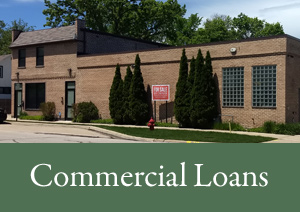Post
What Are the Key Requirements for a Self-Employed Mortgage?

With the rise of self-employment as a viable career option, many individuals are now seeking mortgages to purchase their dream homes. However, securing a mortgage as a self-employed individual comes with its own set of challenges. In this article, we will explore the key requirements that self-employed individuals need to fulfill in order to qualify for a mortgage.
Stable Income Documentation
One of the main challenges faced by self-employed individuals when applying for a mortgage is documenting their income. Unlike traditional employees who receive regular pay stubs, self-employed individuals often have fluctuating incomes. Lenders typically require self-employed applicants to provide consistent income documentation over a specified period, usually two years. This documentation may include tax returns, profit and loss statements, and bank statements.
Strong Credit History
Another important requirement for securing a mortgage is having a strong credit history. Lenders use credit scores to assess an individual’s creditworthiness and determine their eligibility for a mortgage. Self-employed individuals can build and maintain good credit by making timely bill payments, keeping credit card balances low, and avoiding new debt. By demonstrating responsible financial behavior, self-employed individuals can improve their credit scores and increase their chances of mortgage approval.
Adequate Down Payment
A down payment is a significant factor in mortgage approval, and self-employed individuals are no exception. Lenders typically require a down payment of at least 20% of the home’s purchase price for self-employed applicants. Saving for a down payment can be challenging, but self-employed individuals can achieve this goal through careful budgeting and exploring investment options. By making a substantial down payment, self-employed individuals can reduce their monthly mortgage payments and improve their chances of approval.
Debt-to-Income Ratio
The debt-to-income ratio is another important consideration for mortgage approval. This ratio compares an individual’s monthly debt payments to their gross monthly income. Lenders prefer to see a debt-to-income ratio of 43% or lower for mortgage applicants. Self-employed individuals can improve their debt-to-income ratio by paying down existing debts and increasing their income. By keeping their debt levels in check, self-employed individuals can demonstrate financial responsibility to lenders.
Length of Self-Employment
Lenders also consider the length of self-employment when evaluating mortgage applications. Generally, lenders prefer self-employed individuals to have a minimum of two years of self-employment history. However, some lenders may require a longer history, depending on the individual’s specific circumstances. Self-employed individuals with shorter work histories can strengthen their mortgage applications by providing additional documentation, such as client contracts and business licenses, to demonstrate the stability of their business.
Documentation of Business Stability
In addition to income documentation, lenders may also require self-employed individuals to provide documentation of business stability. This documentation may include business licenses, client contracts, and client testimonials. By providing evidence of a stable and successful business, self-employed individuals can reassure lenders of their ability to repay the mortgage.
Savings Reserves
Finally, lenders may look for evidence of savings reserves when evaluating mortgage applications from self-employed individuals. Savings reserves provide a financial cushion and demonstrate the borrower’s ability to weather financial challenges. Self-employed individuals can build and maintain savings reserves by setting aside a portion of their income each month. By showing that they have sufficient savings reserves, self-employed individuals can improve their chances of mortgage approval.
Conclusion
In conclusion, securing a mortgage as a self-employed individual requires careful preparation and documentation. By fulfilling key requirements such as stable income documentation, a strong credit history, an adequate down payment, a favorable debt-to-income ratio, a sufficient length of self-employment, documentation of business stability, and savings reserves, self-employed individuals can increase their chances of mortgage approval. At 1st Eagle Mortgage, we understand the unique needs of self-employed borrowers and are committed to helping them navigate the mortgage process with ease.
No comments yet




